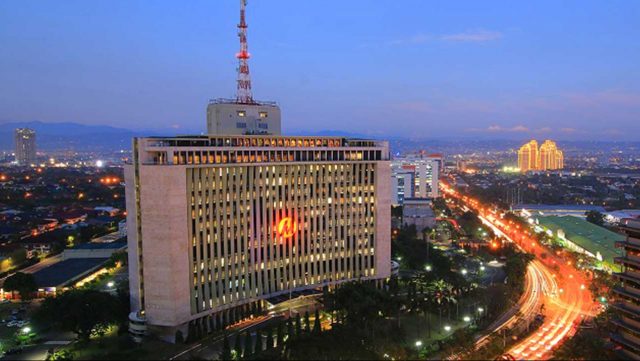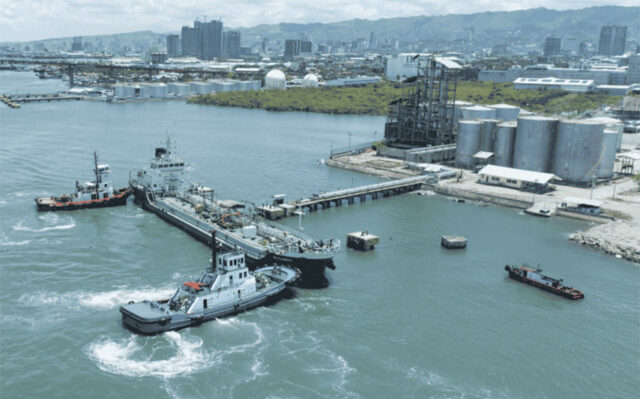The Bureau of Internal Revenue (BIR) wields significant authority not only to levy taxes but also to investigate taxpayers’ books of account and accounting records. These investigations typically focus on verifying the accuracy and completeness of revenue and costs and deductions claimed by taxpayers. Avoiding tax investigations is often just a matter of hope.
For construction firms, given the complexities and unique nature of construction projects, which often involve multiple contracts, subcontractors, and varying timelines, the likelihood of tax scrutiny is heightened, making it essential to maintain meticulous records and stay compliant with tax regulations.
In this article, we’ll explore the common tax findings that construction firms face during BIR investigations.
TIMING OF REPORTING OF CONSTRUCTION REVENUE AND RETENTION FEES
Taxpayers facing tax investigations know very well that the Revenue Officers (RO) often compare the revenue reported in the Annual Income Tax Return (AITR) and Value-added Tax (VAT) returns. This comparison frequently yields discrepancies.
For income tax purposes, construction firms report revenue on the basis of the percentage of completion, whereas for VAT purposes, such firms issue the invoice and report the revenue in the month in which the service is rendered or supplied. Ideally, there should be no timing difference as the two rules are parallel; however, what happens in real life is different.
On the other hand, retention fees are amounts or a portion of the invoiced revenues withheld by the client for the performance or completion of the contract. This practice serves as a form of security for the client, ensuring that the contractor completes the project satisfactorily and addresses any defects or issues that may arise after project completion.
In tax audits, retention fees normally cause discrepancies when comparing the revenue reported in the AITR and VAT returns. While retention fees may have been reported in the income tax return for a particular year, the same are belatedly reported in subsequent years when collected from the client. Prior to the implementation of the Ease of Paying Taxes (EoPT) Act, taxpayers engaged in the sale of services, like construction firms, reported their revenues in the VAT returns upon collection thereof. Hence, these retention fees will only be reported in the VAT returns once the client has remitted them back to the construction firms.
Note, however, that with the implementation of EoPT, this will no longer be an issue since the timing of reporting of revenue for both income tax and VAT is aligned.
To address the timing differences, construction firms are advised to ensure that their accounting software can handle both income tax and VAT reporting requirements seamlessly. This will help in tracking and reconciling revenue recognition accurately. Moreover, don’t wait for the tax investigation but instead conduct monthly reconciliations to identify and address any discrepancies. This proactive approach can help in minimizing timing differences and ensuring compliance. Further, maintain detailed records of all transactions, including the basis for revenue recognition and the timing of invoices issued. This documentation will be crucial in the case of tax investigations by tax authorities.
TECHNICAL FEES PAID TO NON-RESIDENT FOREIGN ENTITIES
Usually, construction firms have technical support agreements with their non-resident foreign parent company or head office. These technical services typically encompass a wide range of support functions designed to enhance operational efficiency and project execution, such as project management, engineering support, information technology services, procurement and supply chain management, quality control and assurance, health and safety compliance, and training and development.
In tax investigations, payment of technical service fees to a foreign parent company or head office repeatedly results in deficiency final withholding tax (FWT) and withholding VAT (WVAT) due to non-withholding of tax. Thus, construction firms must have knowledge of the withholding tax rules to avoid this tax finding or to defend their position.
The Philippine Tax Code, as amended, provides that non-resident foreign corporations be taxed on their taxable income from all sources within the Philippines. For rendition of services, the income is sourced within the Philippines if the services are performed in the Philippines. If rendered outside the Philippines, the income is sourced outside the Philippines, hence not taxable.
Recently, the BIR introduced additional guidelines in determining the source of income for cross-border services, which is if the property, activity, or service that produces the income is in the Philippines, hence subject to FWT and WVAT. The three crucial factors to such determination, are: (1) whether the cross-border services are dependent on the successful use, consumption, or utilization by the Philippine purchaser of the service for income to be accrued; (2) whether the performance of the service depends on the facilities located in the Philippines; or (3) whether the particular stages occurring in the Philippines are integral to the overall transaction that the business activity would not have been accomplished without it.
To avoid issues related to the payment of technical service fees, construction firms should first examine all the components of the agreement, taking into account the services to be performed in their entirety, and not single out or compartmentalize one particular activity as the income-producing activity. In addition, construction firms should consider maintaining comprehensive records of all transactions involving technical service fees, such as the nature of the services, where they are performed, and how the income is sourced. Such records will be invaluable in defending your position during tax investigations. Furthermore, filing a request for confirmation with the BIR of the proper withholding tax treatment of the agreement brings comfort and certainty to the firm.
CONSTRUCTION-RELATED BENEFITS OF WORKERS
Construction firms typically provide their workers, particularly those working directly on site, with a variety of benefits, such as housing, transportation, industrial safety uniforms, and others. These benefits won’t pass the keen eyes of the RO and will be subjected to tax.
To defend the finding, such benefits which are required by the nature of or necessary to the trade or business of the construction firms, or where such benefit is for the convenience and advantage of the construction firms, shall be exempt from fringe benefits tax or withholding tax on compensation, whichever is applicable. Because construction sites are in various locations, construction workers as well as engineers are given temporary housing or lodging near the site to ensure they carry out the project on time and are accessible immediately. Likewise, transportation is provided for the use of workers in performing their duties because they constantly move from one place to another and transport loads of construction materials and equipment. Hence, these vehicles are essential in carrying out the construction works.
To prove that such benefits are valid and necessary in the construction business and to avoid the disallowance, construction firms must ensure that such expenses are properly substantiated with invoices containing (1) the name of the firm, (2) the amount of the expense being deducted, and (3) the direct connection of the expense being deducted to the development, management, operation, and/or conduct of the trade, business, or profession of the taxpayer.
5% CREDITABLE WITHHOLDING VAT ON SALES TO THE GOVERNMENT
Having construction projects with the government sometimes bring headaches to construction firms. Under the tax rules, the government or any of its political subdivisions, instrumentalities, or agencies, including government-owned or -controlled corporations (GOCCs), must, before making payment on account of each purchase of goods or services that are subject to VAT, deduct and withhold a final VAT at the rate of 5% of the gross payment thereof. Provided, beginning Jan. 1, 2021, the VAT withholding system shall shift from final to creditable. Such 5% VAT withheld by the government can be claimed by the construction firms as tax credits if these are evidenced by valid BIR Form No. 2307 issued by the government entities.
Issues arise when such BIR Forms No. 2307 are belatedly issued by the government entities, leading to disallowance of tax credits.
TAKEAWAY
A BIR audit can be rigorous for construction firms due to the complexity of their operations and the significant amounts of tax at stake. Familiarity with the unique tax peculiarities of the industry, along with thorough preparation that includes complete documentation, accurate accounting, and strict compliance with tax regulations, is critical for successfully navigating a BIR audit and avoiding hefty penalties.
Let’s Talk Tax is a weekly newspaper column of P&A Grant Thornton that aims to keep the public informed of various developments in taxation. This article is not intended to be a substitute for competent professional advice.
Trisha Amor M. Gatdula is a manager from the Tax Advisory & Compliance division of P&A Grant Thornton, the Philippine member firm of Grant Thornton International Ltd.
pagrantthornton@ph.gt.com













